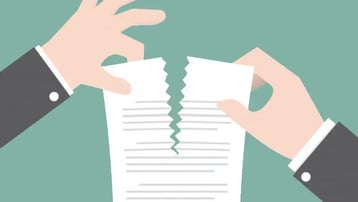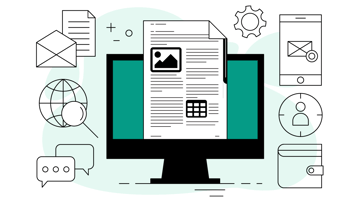This guide covers everything you need to plan and lead a high-impact proposal kickoff meeting—including a proven proposal kickoff meeting agenda and a template tailored for tender teams.
Why a Proposal Kickoff Meeting Matters
The proposal kickoff meeting sets the tone for collaboration, clarity, and commitment. Held within two to three days of receiving the tender documentation, this meeting ensures that your project team can:
- Review the RFP and client expectations
- Validate or adjust the pursuit strategy
- Confirm deliverables and proposal structure
- Assign tasks and set deadlines
- Begin identifying and managing risks
A strong kickoff aligns everyone around the goals and lays the foundation for a high-quality, compliant proposal submission.
Small vs. Large Tenders: One Meeting or Two?
Depending on the size and complexity of the tender, you may need one or two meetings to cover everything:
Small tenders: One well-prepared proposal kickoff meeting where everyone has reviewed the documents in advance.
Large tenders: A two-stage approach:
- A quick initial session to alert stakeholders, outline timing, and confirm responsibilities.
- A more detailed kickoff meeting where the strategy, assignments, and questions are finalized.
In both cases, distributing the RFP and relevant documents beforehand is essential.
Meeting Agenda: What to Cover
A structured proposal kickoff meeting agenda keeps the meeting focused, productive, and aligned with your proposal development process.
Sample Proposal Kickoff Meeting Agenda
- Welcome and Proposal Kickoff Meeting Objectives
Confirm that the proposal has been received and acknowledged.
Explain the purpose of the proposal kickoff meeting and the expected outcomes for the project team. - Review of the Request for Proposal (RFP)
Provide a summary of the client’s request and the project background.
Highlight the proposal requirements, evaluation criteria, and any mandatory compliance sections. - Pursuit Strategy Validation
Review any project planning or pre-tender strategy previously developed.
Adjust the strategy based on changes to the project scope or unexpected elements in the RFP. - Project Scope and Proposal Deliverables
Confirm the full project scope, including services, deliverables, and format requirements.
Outline all expected project deliverables and submission guidelines based on the tender instructions. - Project Timeline and Key Milestones
Set the project timeline, including internal deadlines for drafts, reviews, and executive approvals.
Confirm all external milestones, including deadlines for clarification questions or early submissions. - Assigning Tasks and Defining Roles and Responsibilities
Review every section and question outlined in the Request for Proposal (RFP).
Assign tasks to the appropriate team members or subject matter experts.
Identify any contributors who are not present but need to be informed of their roles and responsibilities. - Proposal Risk Management
Identify potential risks that could affect the proposal timeline or submission quality.
Discuss and document initial risk management strategies and responsible owners for each item. - Next Steps and Real-Time Follow-Up
Confirm all action items and assign task ownership clearly.
Share the project timeline, contact points, relevant documents, and shared workspace details to support real time collaboration.
Suggested content



Who Should Attend?
A cross-functional group ensures the proposal is complete, accurate, and persuasive. Typical attendees include:
- Proposal Manager or Project Manager
- Business Development or Sales
- Subject Matter Experts (SMEs)
- Writers and Graphic Designers
- Legal, Finance, and Procurement
- Health, Safety & Environment (HSE), Quality Assurance
- Engineering, IT, and Logistics
- Any subcontractors or external contributors
Ensure those not present but responsible for key tasks are briefed immediately after the meeting.
Proposal Kickoff Meeting Template: What to Prepare
To ensure your proposal kickoff meeting is focused and effective, it’s essential to prepare a structured proposal kickoff meeting template in advance. This template acts as your meeting roadmap, ensuring key topics are addressed and your team is aligned from the start.
Here’s what your proposal kickoff meeting template should include:
-
Proposal kickoff meeting agenda: A clear, time-boxed outline of the meeting’s structure, listing key discussion points such as strategy validation, timeline, and task assignment.
-
List of required proposal sections: Break down the RFP into specific content areas—executive summary, technical scope, pricing, compliance, sustainability, etc.—so contributors understand their writing responsibilities early.
-
Summary of RFP instructions and client expectations: Highlight critical instructions from the Request for Proposal (RFP), such as response format, length restrictions, evaluation criteria, submission method, and deadlines.
-
Draft project timeline and key submission dates: Provide a visual timeline or milestone list that includes internal deadlines for drafts and reviews, as well as external deadlines for questions, approvals, and final submission.
-
Preliminary list of questions for clarification: Compile a draft list of ambiguities or gaps identified in the RFP that need to be addressed with the client. This helps your team flag potential issues early.
-
Access to relevant documents in a shared workspace: Ensure everyone has access to the RFP, compliance matrices, proposal outline, pursuit strategy, writer’s package, and branding guidelines in one centralized location. This enables real-time collaboration and eliminates version confusion.
-
Roles and responsibilities overview: Include a tentative list of assigned roles, especially for proposal managers, writers, reviewers, and subject matter experts (SMEs), so that responsibilities can be confirmed and clarified during the meeting.
This proposal kickoff meeting template helps guide discussion, ensures consistency, and reduces the risk of missing critical tasks during a high-pressure proposal development cycle.
Task Allocation and Accountability
One of the most important outcomes of the proposal kickoff meeting is to ensure each part of the proposal is clearly assigned to the right person or team—and that deadlines are understood and accepted.
Here’s how to streamline task allocation for better accountability:
-
Use a pre-prepared checklist of RFP requirements: Break down the RFP into a checklist that maps each requirement to a content section. This enables fast and informed discussion on who owns what during the meeting.
-
Match proposal sections to subject matter experts (SMEs): Assign proposal content based on team members’ areas of expertise—for example, technical sections to engineers, pricing to finance, and ESG sections to sustainability specialists.
-
Flag sections requiring input from multiple contributors: Some parts of the proposal may need cross-functional input (e.g., risk management, implementation plans, or case studies). Identify these early and define who will lead coordination.
-
Account for contributors outside the meeting: Not all task owners may be present at the kickoff. Ensure their responsibilities are documented and communicated afterward, with a clear explanation of expectations and deadlines.
-
Confirm accountability in real time: Share a task assignment tracker during the meeting and confirm ownership immediately. This reduces confusion and allows the team to move forward with clarity.
-
Link tasks to milestones on the project timeline: Clarify when initial drafts are due, when reviews will occur, and how the approval process will be managed. This keeps the entire project team aligned on sequencing and priorities.
In the case of complex or large-scale tenders, task allocation may require follow-up planning sessions. These deeper dives allow each sub-team to focus on their respective sections while maintaining alignment with the overall proposal timeline and strategy.
Best Practices for a Successful Proposal Kickoff Meeting
A strong proposal kickoff meeting sets the tone for a focused, aligned team ready to deliver a high-quality response. Use these best practices to drive clarity, engagement, and progress toward your project goals and a successful project outcome.
- Keep it focused (60–90 minutes): Respect time by sticking to essential topics and saving deep dives for follow-ups.
- Follow the agenda: A clear agenda keeps discussion on track and shows professionalism.
- Use visual aids: Timelines and outlines help clarify scope, roles, and deadlines.
- Encourage input: Invite questions and insights to build engagement and ownership.
- Document clearly: Assign a note taker to capture key actions and responsibilities.
- Tie back to project goals: Reinforce how each task supports your broader objectives.
- Promote ownership: Make it interactive—avoid treating the meeting as a one-way briefing.
By applying these tips, you set your team up for a smoother process—and a proposal that’s strategic, complete, and competitive.
Follow-Up and Communication
After the meeting, follow up promptly to maintain momentum. Share:
- Meeting minutes and assignments
- Final proposal timeline
- Clarification question deadlines
- Shared folder or project workspace details
Ongoing communication—ideally through real-time tools—will help keep the proposal on track and ensure updates are captured as they arise.
Conclusion: Set the Tone with the Right Kickoff
The proposal kickoff meeting is not a formality—it’s a strategic event that helps your team collaborate, meet deadlines, and win.
With a solid proposal kickoff meeting agenda and a clear template, your team can move forward with clarity and confidence. Done right, your kickoff meeting will set the tone for a successful proposal and ultimately increase your chances of securing the contract.
A solid kickoff sets the plan—but follow-through wins the work. XaitPorter gives you the RFP response software you need to write, manage, and deliver proposals at scale.









